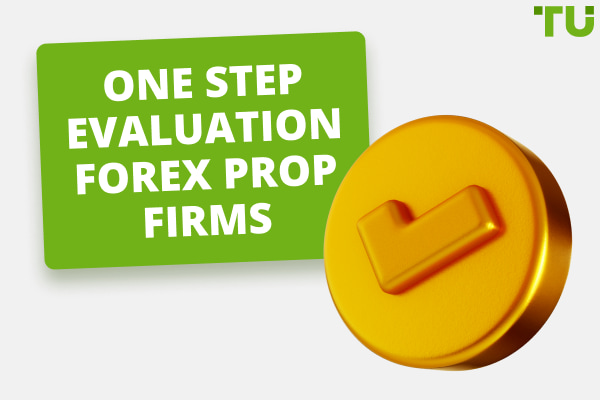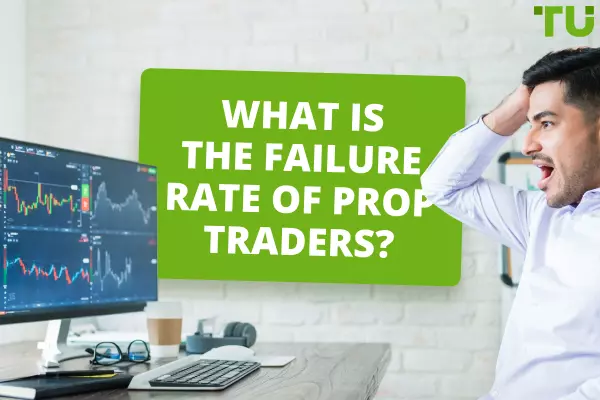How To become a Full-Time Trader - Top 3 Options
If you’re considering a career in trading, your top 3 paths would be:
-
1
Work with a prop firm to get funded
-
2
Investing your money
-
3
Finding a trading job
Forex trading is an exciting, profitable activity that can be a hobby or a full-time job. In this article, the experts at TU will discuss the process of becoming a full-time trader and how a prop trading firm can assist in achieving this goal. They will also explain how to get funded in a prop trading company, which is an essential step for traders looking to establish a steady financial basis.
Fund your account with Topstep!Is full time trading a good idea?
Making the decision to pursue a full-time trading career is a highly personal choice that depends on individual circumstances and preferences. To help you weigh the options, let's delve into the pros and cons of full-time trading:
👍 Pros
•
Flexibility:
Full-time trading offers unparalleled flexibility in terms of schedule and location. Traders have the freedom to work from anywhere in the world and set their own hours, enabling a lifestyle tailored to their needs
•
Control:
Embracing full-time trading empowers individuals with greater control over their trading decisions. This ability to react swiftly to market changes can be a significant advantage when seeking profitable opportunities
•
Potential for higher profits:
Devoting oneself entirely to trading provides more time for market analysis and execution, potentially leading to higher profits compared to part-time traders. The increased commitment allows for thorough immersion in the market, staying updated on current events and trends
•
Skill development:
Full-time traders have the luxury of time to cultivate and refine their trading skills. By dedicating themselves to continuous learning and practice, they can become experts in their craft, which can greatly enhance their chances of success
•
Focused approach:
With no competing commitments, full-time traders can devote their undivided attention to developing and implementing effective trading strategies. This concentrated effort often leads to improved performance and increased profitability
•
Potential for greater income:
Full-time traders have the opportunity to earn a higher income compared to their part-time counterparts. The additional time dedicated to trading enables them to seize more opportunities and capitalize on favorable market conditions
👎 Cons
•
Risk:
Engaging in full-time trading involves relying solely on trading profits to sustain one's livelihood. As with any investment activity, there is an inherent risk of financial loss, which can add considerable pressure to the trader's performance
•
Isolation:
Full-time traders may experience feelings of isolation due to working alone without regular interaction with colleagues. The absence of a supportive work environment can be a challenge for those who thrive in a social setting
•
Stress:
The nature of full-time trading can be inherently stressful. Constant monitoring of markets, making critical decisions, and dealing with potential financial consequences can create a high-pressure environment that not everyone may find suitable
•
Lack of stability:
Unlike traditional employment, full-time trading lacks the stability of a regular paycheck and employee benefits. Income fluctuations can be more pronounced, requiring traders to be financially prepared for periods of uncertainty
•
Potential for burnout:
The intense demands of full-time trading can lead to burnout. The constant pressure to make profitable trades, combined with the highly competitive nature of the market, can exhaust traders mentally and emotionally
How can I become a full time trader?
There are several paths to consider when embarking on your full-time trading journey. Let's delve into each option, their definitions, and a brief comparison of their pros and cons:
Option 1: Forex prop company
Working with a Forex prop company involves collaborating with a firm that provides funding to traders, enabling them to trade with the company's capital.
👍 Pros
•
Access to funding:
Joining a Forex prop company offers traders access to funding that they might not have otherwise, allowing them to increase their trading capital and potentially earn higher profits
•
Zero risk:
Since the funding comes from the prop company, traders bear no personal risk. This provides a safety net and peace of mind
•
Profit split:
Traders receive a portion of the profits they generate, which can boost their overall earnings and incentivize success
•
Potential for growth:
Collaborating with a Forex prop company presents opportunities for growth and scalability in trading endeavors
👎 Cons
•
Limited control:
Working with a prop company may mean relinquishing some control over trading decisions and strategies, as the company may impose certain guidelines
•
Profit sharing:
Traders must share a portion of their profits with the prop company, reducing their overall earnings compared to trading independently
•
Risk of scams:
It is essential to exercise caution and choose a reputable Forex prop company, as not all entities in this industry have honest intentions
Option 2: Investing your own money
Another approach to becoming a full-time trader is to invest your own capital. This option allows for complete independence and control over your trading activities.
👍 Pros
•
Full control:
Investing your own money means having full autonomy over trading decisions, strategies, and the execution of trades
•
Unlimited earning potential:
By relying solely on your own capital, you have the opportunity to earn unlimited profits, unrestricted by salary caps or profit-sharing arrangements
•
Freedom and flexibility:
Investing your own money grants you the freedom to trade whenever and wherever you desire, offering flexibility in your work-life balance
👎 Cons
•
Risk exposure:
Trading with your own money inherently carries substantial risk. There are no guarantees of profits, and the possibility of losing your entire investment is ever-present
•
Capital requirement:
To begin trading with your own money, a significant amount of capital is typically required. This financial barrier may be prohibitive for some individuals
•
No guaranteed income:
Unlike traditional employment, trading does not offer a predictable income stream. Monthly profits can fluctuate, leading to potential financial uncertainty
Option 3: Finding a trading job
Seeking employment as a trader with an established trading company is another alternative path to full-time trading. These jobs are mainly execution-focused as compared to prop trading jobs that are analysis-focused.
👍 Pros
•
Steady income:
Working for a trading company provides a reliable salary, offering stability and reducing the financial risks associated with trading independently
•
Access to resources:
Trading companies often provide their traders with valuable resources, including research, analysis, and specialized trading tools
•
Networking opportunities:
Joining a trading company allows for networking with experienced traders and industry professionals, fostering valuable connections
👎 Cons
•
Limited control:
As an employee of a trading company, you may have limited autonomy over trading decisions and strategies, adhering to company guidelines and protocols
•
Limited potential for profits:
Trading with the company's capital or on behalf of clients may limit your potential for profits compared to trading with your own funds
•
High-pressure environment:
Trading jobs can be demanding, with performance expectations, tight deadlines, and the need to handle high-stakes situations, creating a potentially stressful work environment
3 best options: comparison
| Criteria | Forex Prop Company | Investing Money | Trading Job |
|---|---|---|---|
Capital Required |
High |
Assets for copy trading Flexible |
Regulator None |
Independence |
High |
Assets for copy trading High |
Regulator Moderate |
Risk Management |
Flexible |
Assets for copy trading Self-managed |
Regulator Firm's rules |
Profit Potential |
High |
Assets for copy trading Variable |
Regulator Salary |
Resources |
Provided |
Assets for copy trading Self-arranged |
Regulator Provided |
Responsibilities |
Operations + Trading |
Assets for copy trading Self-trading |
Regulator Execution |
Flexibility |
High |
Assets for copy trading High |
Regulator Moderate |
Challenges |
Capital + Skills |
Assets for copy trading Personal risk |
Regulator Competition |
How much can I earn as a full time trader?
Determining the exact earnings of a full-time trader can be challenging, as it depends on various factors such as the type of trading job or prop company, individual performance, and experience level. However, here is a breakdown of the typical salary and profit-sharing structures for traders:
Salary for trading jobs
The US national average salary for a trader is approximately $86,543 per year. However, it's important to note that day trading earnings can vary significantly based on factors like self-employment, working for individual investors, or being employed full-time by a company. When working for a trading company, salaries are often based on the success of trades rather than a fixed base salary.
Profit share in prop trading firms
Prop trading firms typically have profit-sharing models, where the profits are divided between the trader and the company. The specific ratio depends on the capital provided. If a trader contributes more of their own capital, they generally receive a larger percentage of the profits, while the company takes a larger share if they provide more capital.
Based on various sources, here are some typical salary and profit share ranges for prop traders:
The median salary for a prop trader is around $81,000 per year in the US, with approximately 50% of the salary coming from bonuses, commissions, and profit-sharing. Salaries can range from $50,000 to $151,000 based on experience and performance
Wall Street-style prop firms often offer a base salary of over $100,000, along with a significant bonus based on a percentage of the trader's profits
Profit splits can vary, but they can be as favorable as 80:20 in favor of the trader, meaning the trader receives 80% of the profits. In some cases, traders may even receive 100% of the first $5,000 in profits and 90% thereafter
How to find the best prop trading account?
Becoming a day trader in a prop company involves several key steps. Here's a step-by-step guide to help you navigate the process:
Learn how the market works:
Gain a solid understanding of market dynamics, financial instruments, and behavioral finance. Educate yourself through self-study, courses, and attending seminars to enhance your knowledge
Practice trading:
Develop and refine your trading strategy by practicing with a demo account. This allows you to simulate real-market conditions, test your strategies, and gain valuable experience without risking real money
Research and find a prop company:
Explore different prop trading firms that specialize in stocks, bonds, Forex, crypto, indices, futures, or commodities. Look for firms that align with your trading interests and objectives
Apply and pass the evaluation process:
Once you've identified suitable prop companies, submit your application. Expect the evaluation process to include trading tests and interviews to assess your skills and expertise. Successful completion of this process is crucial for securing funding
Receive capital funding:
Upon passing the evaluation, the prop company will provide you with capital funding to trade with. This funding allows you to access larger trading volumes and potentially earn higher profits. Remember to adhere to the company's risk management guidelines and trading parameters
Continuously refine your strategy:
As a day trader, refining and adapting your trading strategy is essential. Analyze your trades, identify patterns, and make adjustments accordingly. Stay updated with market trends, news, and developments to enhance your decision-making process
Manage risk effectively:
Day trading involves inherent risks, so it's crucial to manage your risk exposure. Implement risk management techniques such as setting stop-loss orders, diversifying your trades, and avoiding excessive leverage. A disciplined approach to risk management can help safeguard your capital and improve long-term profitability
Best Forex prop firms in 2024
Experts have identified the following to be the Best Forex prop firms in 2024:
SurgeTrader
SurgeTrader is a prop trading firm that allows traders to trade various financial instruments including Forex, metals, indices, oil, crypto, and stocks. They offer different account options with varying funding amounts, each with its own profit split. Traders are required to keep a portion of their profits with the capital, and the profit split can be up to 75%. SurgeTrader stands out for its non-recurring fees and the opportunity for traders to qualify for higher funding limits quickly. They also provide fast withdrawal processing and support multiple trading platforms such as NinjaTrader, TradingView, and TSTrader.
Topstep
Topstep is a reputable prop trading firm that provides aspiring traders with the opportunity to trade stocks, futures, and indices. They offer capital, support, risk management strategies, and coaching to help traders succeed. Traders are rewarded through a profit split arrangement, where they receive 100% of the profits up to $5,000 and 80% of the profits thereafter. Topstep also offers a 14-day free trial, group performance coaching sessions, and access to professional trading tools and resources. The firm accepts payments through multiple methods such as PayPal, Mastercard, Visa, American Express, and Discover.
FAQs
Is it possible to become a full-time trader?
Yes, it is possible to become a full-time trader with dedication, education, and practice.
How much money do I need to be a full-time trader?
The amount of money needed to be a full-time trader varies based on personal circumstances and trading style, but having sufficient capital to cover living expenses and trading costs is essential.
Can I earn $1000 daily from trading?
Earning $1000 daily from trading is possible, but it depends on various factors such as market conditions, trading strategies, risk management, and individual skill and experience.
Is 30 too old to become a trader?
No, 30 is not too old to become a trader. Trading can be pursued at any age, and many successful traders have started later in life. It's important to focus on learning, developing skills, and adapting to the market regardless of age.
Glossary for novice traders
-
1
Trading
Trading involves the act of buying and selling financial assets like stocks, currencies, or commodities with the intention of profiting from market price fluctuations. Traders employ various strategies, analysis techniques, and risk management practices to make informed decisions and optimize their chances of success in the financial markets.
-
2
Broker
A broker is a legal entity or individual that performs as an intermediary when making trades in the financial markets. Private investors cannot trade without a broker, since only brokers can execute trades on the exchanges.
-
3
Prop trading
Proprietary trading (prop trading) is a financial trading strategy where a financial firm or institution uses its own capital to trade in various financial markets, such as stocks, bonds, commodities, or derivatives, with the aim of generating profits for the company itself. Prop traders typically do not trade on behalf of clients but instead trade with the firm's money, taking on the associated risks and rewards.
-
4
Copy trading
Copy trading is an investing tactic where traders replicate the trading strategies of more experienced traders, automatically mirroring their trades in their own accounts to potentially achieve similar results.
-
5
Risk Management
Risk management is a risk management model that involves controlling potential losses while maximizing profits. The main risk management tools are stop loss, take profit, calculation of position volume taking into account leverage and pip value.
Team that worked on the article
Chinmay Soni is a financial analyst with more than 5 years of experience in working with stocks, Forex, derivatives, and other assets. As a founder of a boutique research firm and an active researcher, he covers various industries and fields, providing insights backed by statistical data. He is also an educator in the field of finance and technology.
As an author for Traders Union, he contributes his deep analytical insights on various topics, taking into account various aspects.
Dr. BJ Johnson is a PhD in English Language and an editor with over 15 years of experience. He earned his degree in English Language in the U.S and the UK. In 2020, Dr. Johnson joined the Traders Union team. Since then, he has created over 100 exclusive articles and edited over 300 articles of other authors.
Mirjan Hipolito is a journalist and news editor at Traders Union. She is an expert crypto writer with five years of experience in the financial markets. Her specialties are daily market news, price predictions, and Initial Coin Offerings (ICO).
















